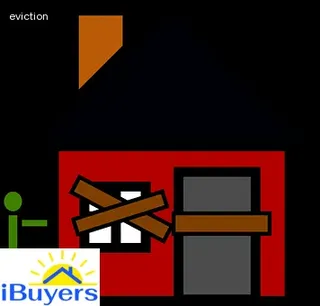When it comes to rental property, abandonment can be a difficult situation for landlords to navigate. It’s important to understand the legal implications of abandonment in Michigan and what steps should be taken if a tenant abandons their property.
There are several key considerations landlords must make when dealing with an abandoned rental property in the state. First, they need to determine whether or not the tenant has actually abandoned their residence by taking inventory of all their belongings and whether they have notified their landlord of moving out.
If it is determined that the tenant has abandoned their rental property, landlords should conduct a thorough inspection to assess any damage and document the current condition of the premises. Landlords must also take necessary steps to secure the premises and protect against further liability or damages.
Additionally, landlords should become familiar with state laws regarding abandoned personal property as well as eviction procedures in Michigan. Knowing these key points will help landlords manage abandonment of rental properties in Michigan more effectively and reduce any potential losses incurred from the situation.

If a tenant abandons their property in Michigan, it is the landlord's responsibility to establish tenant abandonment. This can be done by ensuring all efforts have been made to contact the tenant and collect rent or any other fees owed.
If the landlord has attempted to contact the tenant multiple times without any success, they should consider taking further steps to confirm abandonment. This may include inspecting the unit for signs of recent activity, such as personal belongings and furniture, or checking with neighbors and local businesses to see if anyone has seen the tenant recently.
Additionally, landlords may want to look into whether or not utility services are still active at the property. Once it is clear that a tenant has abandoned the unit, landlords can then take the necessary steps to dispose of any remaining personal property and regain possession of the premises in accordance with Michigan's landlord-tenant law.
Determining if a tenant has left personal property behind after abandoning the property in Michigan is an important step for landlords. Michigan state law governs how and when landlords can enter the premises to inspect for abandoned items.
Landlords must follow these rules closely to ensure compliance with regulations and avoid legal trouble. If the tenant has vacated, landlords should take a detailed inventory of all remaining personal belongings and document any damage to the rental unit.
Landlords may also need to research who owns certain items that are found on the premises, as they may have been left by previous tenants or visitors. Once all personal items have been determined, landlords should contact the tenant and provide written notice that they must pick up their belongings within a certain timeframe or risk having them sold or disposed of at their expense.
Taking these steps is necessary for ensuring that landlords protect their rights while providing due process to the tenant.

In Michigan, if a tenant abandons their rental property, landlords should understand the laws and regulations surrounding the process. The Michigan Landlord Tenant Act requires landlords to make reasonable attempts to contact the tenant and provide them with a written notice of abandonment.
If the tenant does not respond within seven days, the landlord may consider the unit abandoned and take steps to secure it. Once this is done, all of the belongings left by the tenant must be stored for at least 15 days before they can be disposed of or sold.
During this time period, landlords must also inform any local law enforcement agency that was notified about the abandonment. After 15 days, landlords should contact a lawyer to receive specific instructions regarding how to proceed in order to protect themselves from any legal liabilities related to disposing of abandoned belongings.
When a tenant abandons property in Michigan, a landlord must take action to prevent further loss and reclaim any unpaid rent or damages. The first step is to make sure the tenant has actually abandoned the property.
Landlords should look for signs such as mail piling up, furniture or personal items left behind, and no communication from the tenant. If the tenant has indeed abandoned the property, landlords must begin the legal process of reclaiming ownership.
This requires providing proper notice to the tenants that they are in violation of their lease agreement, filing an eviction lawsuit with Michigan courts, and attending court hearings if necessary. Landlords will also need to inventory any remaining possessions left behind by the tenant and store them in a secure location.
Finally, landlords must ensure that all utilities are shut off at abandoned properties as they can become a safety hazard if not properly handled.

When a tenant abandons their property in Michigan, the landlord is responsible for ensuring that any unclaimed personal property left behind holds value. Depending on the type of items, they may be able to sell or donate these items, which can help cover some of the costs associated with dealing with an abandoned rental unit.
Generally speaking, items such as furniture and electronics can often have a resale value and are worth checking into. Any clothing or other household goods should be donated to local charities or second-hand shops if the landlord does not wish to keep them.
Additionally, any jewelry left behind should be appraised by a qualified professional before being sold or donated. Whatever path the landlord chooses to take, it's important to make sure that any unclaimed personal property left behind by tenants holds value rather than going to waste.
As a landlord in the state of Michigan, it's important to understand the laws when it comes to what to do if a tenant abandons property. Knowing these laws provide landlords with benefits such as understanding their rights and responsibilities, being aware of the legal process of regaining possession of their properties, and also knowing how to pursue any unpaid rent or damages caused by the tenant.
Landlords should be aware that they are entitled to all unpaid rent up until the date they regain possession of the property, as well as any cost incurred while trying to reclaim possession. Furthermore, landlords should also be aware that they can file eviction proceedings against tenants who have abandoned their rental unit without giving proper notice or paying any outstanding rent.
Additionally, in some cases landlords may be able to get financial compensation for damage caused to the property by an abandoning tenant. Understanding these benefits will ensure that landlords are better prepared for what might happen if a tenant abandons property in Michigan and make sure that their rights are protected under state law.

Once a landlord has determined that a tenant has abandoned their property, there are several essential steps that must be taken in order to ensure the process is done correctly and legally. First, landlords should try to contact the tenant directly in order to confirm the tenant's abandonment.
This can be done by sending a written notice and/or through verbal communication. If the tenant does not respond, landlords must then post an acknowledgement of abandonment form in a conspicuous place on the property.
After this, the landlord should check with local law enforcement to determine if any legal action needs to be taken. Then they should inspect the unit and document all damages caused by the tenant while also inventorying any personal items left behind.
Finally, landlords must dispose of any personal items as they deem appropriate and comply with local laws when reclaiming possession of their rental property.
When evaluating a tenant's intent to vacate, landlords in Michigan should consider several factors. First, tenants are required to provide written notice of the date they intend to move out.
Be sure to check if the tenant has given adequate notice as outlined by state law. Secondly, take note of any changes in behavior or communication from the tenant, such as missed rent payments or not responding to calls and emails.
Thirdly, inspect the property once they have vacated to assess any damage that may have been done during their stay and identify any items that have been left behind. Finally, review all rental documents carefully for conditions that must be met for a tenant to legally claim abandonment of the property.
By considering these tips, landlords can better understand a tenant's intent when it comes to abandoning their leased property in Michigan.

When it comes to landlords in Michigan, one of the worst scenarios is when a tenant abandons the property. To help prevent this from happening, it's important to look out for signs of willful abandonment.
These can include failing to pay rent, leaving furniture or other personal items behind, and not responding to communication attempts. Notifying the tenant of their delinquency in rent payments is also a common sign that they may be looking to abandon the property.
Tenants who have left the premises without returning keys or other items needed for access are likely attempting to avoid their rental agreement obligations as well. Landlords should be aware of any sudden changes in behavior from their tenants such as abruptly stopping contact or disappearing without notice.
All these signs can provide clues that a tenant may be planning to abandon their rental unit and leave the property unattended.
As a landlord in Michigan, it is important to protect your legal rights when it comes to tenants who have abandoned the property. Before taking any action, you should first make sure that the tenant has truly abandoned the residence by conducting a thorough investigation.
Look for signs such as notices on doors or windows, mail piling up, and lack of utilities. If there is no written lease in place, you may need to provide a notice of abandonment and wait at least 15 days before entering the premises.
Once it is determined that the tenant has indeed vacated the premises, you are legally allowed to enter and take possession of any belongings left behind. Be sure to document all of these processes and keep a detailed record of any expenses associated with reclaiming the property.
You can also file an eviction complaint in court if necessary. Make sure to follow state laws regarding landlord-tenant relationships when taking action against an abandoned property in Michigan so that you can preserve your legal rights as a landlord.

When a tenant abandons property in Michigan, the landlord is responsible for handling the unclaimed personal property that was left behind. The landlord must contact the local law enforcement agency to find out what is required to be done in order to properly dispose of the abandoned property.
Depending on the county, landlords may also need to hire a bonded storage company to store and protect the items until they can be properly disposed of or sold. If the tenant has not responded after a reasonable amount of time, then landlords are able to sell or auction off any items they deem appropriate.
Landlords must follow specific procedures when disposing of these items and are required to provide a notice of sale or auction prior to disposing of them. Landlords must also provide an accounting of all proceeds made from any sales and can keep any funds left over after covering costs associated with storing, protecting, and selling the items.
When tenants abandon their rental property without notice, it can be a stressful and difficult situation for landlords to navigate. Michigan law requires that landlords take certain steps in order to protect themselves from damage or loss of rent, and it's important to understand these procedures.
The first step is to make sure the tenant has actually left--it may be necessary to inspect the property before officially declaring abandonment. If the tenant has vacated, then the landlord must take steps to secure it and protect any personal property that may have been left behind.
Additionally, if there is an unpaid balance for rent or utilities, landlords should consider taking legal action in order to recuperate those funds. Landlords must also be aware of their obligations concerning the security deposit--in Michigan, unclaimed deposits must be returned within 30 days after the tenant vacates.
Finally, while it may seem daunting at first, understanding and following the applicable laws will help landlords protect themselves when dealing with tenants who have left without notice.

If a tenant has abandoned property in Michigan, it is important for landlords to document the process of determining abandonment. Landlords must make reasonable attempts to contact the tenant and provide notice of their intent to terminate the lease.
If a tenant fails to respond or vacate the property within seven days after receiving notice, landlords are allowed to enter the rental unit, inspect it, and collect any remaining personal belongings. Additionally, landlords must also document all attempts to locate tenants in order to prove that they made reasonable efforts.
This includes providing records of phone calls, emails, certified letters sent through USPS, etc. Lastly, if tenants fail to pay rent for 15 consecutive days without communication from them, landlords can consider this as evidence of abandonment and terminate the lease agreement.
When evaluating the value of personal property left behind by a tenant that has abandoned a property in Michigan, it can be difficult to determine the worth of these possessions. Landlords should consider factors such as the condition of the items, any potential liabilities associated with them, and whether they are necessary for the future use of the rental unit.
The current market value is another important element to consider when appraising unclaimed personal property. Landlords should look at how much similar items are selling for in their area to determine what would be fair compensation if they decide to sell or donate the items.
Additionally, some states have laws that limit how much a landlord can charge for storage fees on these types of belongings. It is important for landlords to stay informed about state regulations and adhere to them when evaluating any unclaimed personal property.

Abandoning a rental property in Michigan can have serious implications for landlords, including financial and legal liabilities. If a landlord fails to formally declare an abandoned rental property, they could be held responsible for any damage or unpaid rent the tenant left behind.
Furthermore, if the tenant is still legally occupying the premises, the landlord must go through the correct process of eviction as outlined by Michigan state law to reclaim their property. Additionally, failing to properly declare an abandonment may make it more difficult for landlords to collect on any outstanding debts owed by the tenant.
It is important that landlords take the time to understand their rights and obligations when it comes to dealing with tenants who have abandoned their rental properties in Michigan.
When a tenant abandons their property in Michigan, it is important for landlords to take the right steps to protect their assets and maximize their chances of getting the rent they are due. First, as soon as you become aware of the abandonment, landlords should immediately begin an inspection of the rental unit and document any damage or unpaid rent.
This will help ensure that all issues are addressed quickly and efficiently before they become more serious problems. Additionally, landlords should make sure to follow all laws regarding tenant rights and eviction proceedings so that they do not inadvertently put themselves at risk of legal repercussions.
Landlords should also consider taking advantage of any available resources, such as dispute resolution services or small claims court, which can help them effectively resolve any tenancy disputes without significant disruption or financial losses. Finally, it is important for landlords to stay organized by keeping accurate records of all communications with tenants and other individuals involved in the dispute so that they can be prepared if a case goes to court.

If a tenant has abandoned their property in Michigan, it can be difficult for landlords to decide whether or not to pursue legal action. In order to make this decision, there are certain guidelines that landlords should consider.
First and foremost, landlords should review the lease agreement and look for any information regarding what may happen if the tenant abandons the property before the lease term ends. Additionally, it is important to document any communication between the landlord and tenant leading up to their departure.
This will help establish whether or not they had given notice of abandonment beforehand. Furthermore, landlords must determine if they have any unpaid rent or damages that need to be addressed by the former tenant.
Lastly, landlords should consider all available options prior to deciding on legal action since it can be an expensive process with no guaranteed outcome.
Staying up-to-date on the latest resources and knowledge base topics related to rental properties is essential for landlords in Michigan. It can help them protect their property, understand tenant rights and obligations, and handle any potential issues that may arise with tenants.
Fortunately, there are a number of highly rated resources available to get the information landlords need. The twenty latest posts on knowledge base regarding rental properties provide insight into some of the most common situations landlords may encounter.
These include dealing with abandoned property, responding to tenant complaints, understanding lease agreements and local laws, preventing discrimination claims, and more. With these resources at hand, landlords can be ready to face whatever comes their way with confidence.
In Michigan, the amount of time a tenant can be gone before their tenancy is considered abandoned varies by county.
In most counties, a tenant will be considered to have abandoned their lease and property after they have been absent for at least 28 days without notifying the landlord.
In some counties, such as Wayne County, this period is extended to 35 days.
If you are unsure about how long your tenant has been away from the property and if it could be considered abandoned, contact your local legal authority for guidance.

In Michigan, a tenant is required to move out within seven days of the landlord's demand for possession of the property. The tenant must be formally given notice via the courts and the written agreement that was signed before occupancy.
If the tenant fails to move out within seven days, then the landlord has the legal right to take action in court. The landlord may seek a court order for possession of their property as well as monetary damages for any unpaid rent or other charges owed.
In such cases, it is strongly advised that landlords contact an experienced attorney as soon as possible to ensure they are following proper procedure and protecting their rights.
Evicting a tenant from a rental property in Michigan is typically done under the state’s Landlord-Tenant Law. This law outlines a process for evicting tenants and establishes certain rights for landlords.
In order to begin the eviction process, the landlord must provide written notice to the tenant indicating that they are being evicted and why. This notice should also inform them of their right to contest the eviction in court.
After this notice has been served, if the tenant has not vacated the property within seven days, then a landlord can file an Eviction Complaint with their local district court. The court will then schedule a hearing date and both parties have an opportunity to present evidence and argue their case.
If the judge rules in favor of the landlord, then they will be granted possession of the property and may also be awarded monetary damages depending on the situation.
In Michigan, landlords are allowed to enter a tenant’s property without prior notice in certain circumstances. Generally speaking, the law requires that landlords give tenants twenty-four hours notice before entering a property.
However, if the tenant has abandoned the property or if there is an emergency situation, no prior notice is required. In these cases, it is important for landlords to document their access to the property and any damage they may find.
Additionally, it is legally necessary for landlords to provide ample opportunity for tenants to retrieve personal items from their rental unit within a reasonable timeframe. This allows tenants to have time to arrange for their possessions to be removed from the premises.
Ultimately, understanding when and how you can enter a tenant’s property in Michigan is essential as a landlord and can help protect your rights and interests in cases of abandonment or other issues.